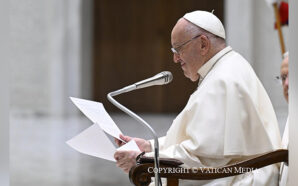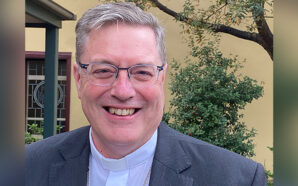We are called to be charitable with each other, but sadly, we often list our worst instincts get in the way of our charity. We let our worst thoughts and inclinations get the best of us, so that even minor things can end up leading us to be unjustly angry at someone else and wishing them harm. This is true, even if we have the best of intentions, even if we know we should be charitable, as two monks came to find out:
Abba Nicetas said of two brothers that they met with the intention of living together. The first thought within himself, ‘If my brother wants something, I will do it,’ and the second thought the same. ‘I will do the will of my brother.’ So they lived many years in great charity. Seeing this, the enemy set out to separate them. He stood at the entrance of the cell, appearing to one like a dove and to the other like a raven. The first said, ‘Do you see that little dove?’ The other said, ‘It is a raven.’ They begun to argue and to contradict one another, then they stood up and fought till they drew blood, to the great joy of the enemy; and they separated. After three days they returned and came to their senses and each asked the other’s forgiveness. They recognized that each of them had believed the bird to be what he had seen and recognized that their conflict came from the enemy. So they lived to the end without being separated. [1]
The two monks wanted to share their spiritual journey together, and they did so with a bond of love, so that they tried to put the will of the other above their own. However, over time, that bond must have weakened, because they let a petty disagreement get in the way of their love. They both saw what seemed to be a bird, but each of them believed they saw a different kind of bird, and because of that, they believed it was so important to have the other believe what they thought they saw was the truth, they became focused on proving that point instead of affirming the common bond of charity they once had. They lost sight of the greater truth, the truth of love. Their conflict quickly became physical, having them get into a fight and hurt each other.
We should recognize the limitations of our knowledge. We should realize that truth without love is not the fullness of the truth, and so, if we embrace it without love, our comprehension of the truth is far less than we think it is. With such proper self-understanding, we will free ourselves from becoming too rigid; we will be able to appreciate and learn from others.
To continue reading this article, click here.
Henry C. Antony Karlson III has done considerable amount of graduate work and study in philosophy, theology, inter-religious dialogue, and comparative theology. He has taught at both Georgetown University and the Catholic University of America. Henry is a Byzantine Catholic who not only is interested in Orthodox and Catholic theologians and philosophers, but also learning from people of every faith tradition.
With thanks to Patheos and Henry Karlson, where this article originally appeared.
[1] The Sayings of the Desert Fathers. trans. Benedicta Ward (Kalamazoo, MI: Cistercian Publications, 1984), 157 [Saying of Nicetas #1].








